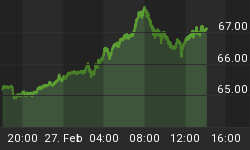China surprised economists today with a surprise cut in interest rates by a quarter point, the first cut in rates since 2008.
Just a couple of months ago, few analysts had forecast that Beijing would cut rates, believing that China was on track for a "soft landing". But after growth slowed to 8.1 per cent in the first quarter, recent data showed the economy was on track for a sharp deceleration.
With the cut, China's benchmark one-year lending rate will now be 6.31 per cent, while the one-year deposit rate will be 3.25 per cent.
The People's Bank of China, which raised interest rates three times last year, had previously characterised its monetary stance this year as "fine tuning", arguing that nothing dramatic was needed to support the economy. The rate cut marks a definite change.
The question now is whether businesses and households will respond to the lower rates by borrowing more. Banks have reported weak loan demand over the past two months.
In an important move alongside the rate cut, the Chinese central bank said it would allow banks to set deposit rates 10 percent above the benchmark level and to set lending rates 20 per cent below the benchmark.
This is a step towards interest rate liberalisation - that is, letting banks decide for themselves, based on market conditions, the level at which they set rates. Analysts believe this is crucial to putting the economy on a more stable footing by ensuring that households earn a fair return on their bank savings, thus encouraging more income to be used for consumption.
What's it Mean?
The simple explanation is China is slowing far more than the soft-landing crowd expects.
China wants to stimulate growth but it has already exhausted every economically viable infrastructure project. All that is left is malinvestment opportunities. Moreover, new projects will add to delays in much-needed rebalancing efforts both within China and externally.
China will publish industrial output and sales data this weekend. PMI reports suggest the data will not be very good although there has been a huge discrepancy lately between "official" reports and PMI reports.
Look for the "official" reports to reflect the slowdown shown in the PMI, and perhaps much worse.
Should China march ahead with massive numbers of new infrastructure projects, more state-owned-enterprise bad debts will undoubtedly pile up and once again private citizens will pay the price for the cleanup.
Hard Landing Coming Up
On May 12, in Screeching Halt in China; Weak Trade Data; Imports and Exports Fall Way Short of Expectations; Credit Crunch Underway; Feeble Forecasts From Pimco, Others I stated China bulls are in for a multi-year shock because rebalancing from an economy overly dependent on exports is going to be far more painful, and last much longer than most think. Data is coming in much weaker than expected, but I propose this is only the very beginning.
I am sticking with 3.5% average growth for the rest of the decade, an idea proposed by Michael Pettis in a bet with The Economist. For details, please see 12 Predictions by Michael Pettis on China; Non-Food Commodity Prices Will Collapse Over Next Three to Four Years; Nails in the Hard Landing Coffin?
Perfect Demographic Storm
For more on China, please consider China's Population Poised to Crash in Perfect Demographic Storm















